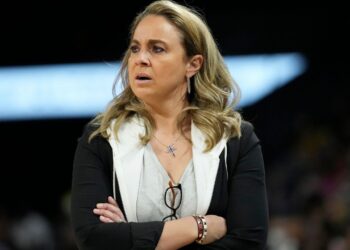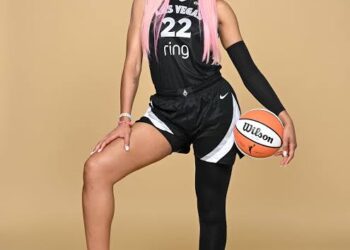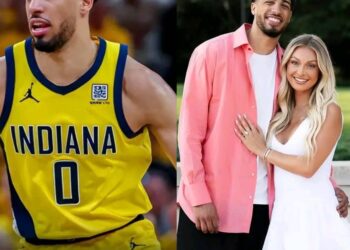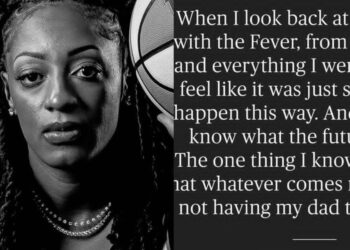In a seismic shift for women’s basketball, the WNBA Board of Governors has appointed Lisa Marie Bluder as the league’s second commissioner, effective immediately. The Hall of Fame coach, who retired from the University of Iowa in 2024 after leading the Hawkeyes to back-to-back NCAA finals, steps in following Cathy Engelbert’s abrupt resignation on October 17. The move caps months of escalating tensions between Engelbert and players, culminating in a public firestorm that threatened the league’s momentum.
Bluder, 64, brings a player-centric pedigree honed over four decades. At Iowa, she mentored stars like Caitlin Clark, amassing 24 postseason appearances and championing equity in women’s sports. “I’ve spent my career building trust with athletes,” Bluder said in her first statement. “The WNBA’s stars deserve a commissioner who listens first and leads with empathy. Together, we’ll turn growth into greatness—for players, fans, and the game.”
Engelbert’s six-year tenure was a double-edged sword. She secured a landmark $2.2 billion media rights deal, expanded the league to 18 teams by 2030, and drove revenue projections to $1 billion in 2025. Yet, her exit stems from a deepening rift with the WNBPA. The flashpoint arrived in late September when Minnesota Lynx forward Napheesa Collier unleashed a blistering critique after an ankle injury in the playoffs. In a viral presser, Collier accused Engelbert of “tone-deaf” leadership, recounting a February meeting where the commissioner allegedly dismissed player pay concerns by saying Clark “should be grateful” for her $16 million in endorsements and that athletes ought to be “on their knees thanking” her for the media deal.
The fallout was swift and unforgiving. Players like Nneka Ogwumike and Breanna Stewart echoed Collier’s frustrations over stagnant salaries—averaging $130,000 despite booming viewership—lax officiating leading to injuries, and a failure to combat online hate speech. “The worst leadership in the world,” Collier declared, sparking #FireCathy chants at arenas and social media boycotts. Even WNBA legend Sue Bird’s wife, Megan Rapinoe, lamented the “broken trust” in a recent podcast, urging a reset.
Engelbert’s defenses fell flat. In a pre-Finals address on October 3, she vowed a task force on officiating and denied specifics of Collier’s claims, calling them “inaccuracies.” But canceled meetings and player walkouts during CBA talks—expiring October 31—sealed her fate. Sources say NBA Commissioner Adam Silver, Engelbert’s overseer, greenlit the change amid owner pressure for harmony.
Bluder’s appointment signals a pivot toward collaboration. Early endorsements from Clark (“Coach Bluder gets it—players first”) and A’ja Wilson highlight hope for smoother negotiations. As the league eyes Unrivaled’s $222,000 average salaries for contrast, Bluder’s mandate is clear: bridge the pay-revenue gap, enhance safety, and amplify voices.
This isn’t just a hire; it’s a reckoning. Under Bluder, the WNBA could finally match its on-court fire with off-court fairness, ensuring the stars who pack arenas get their due.










